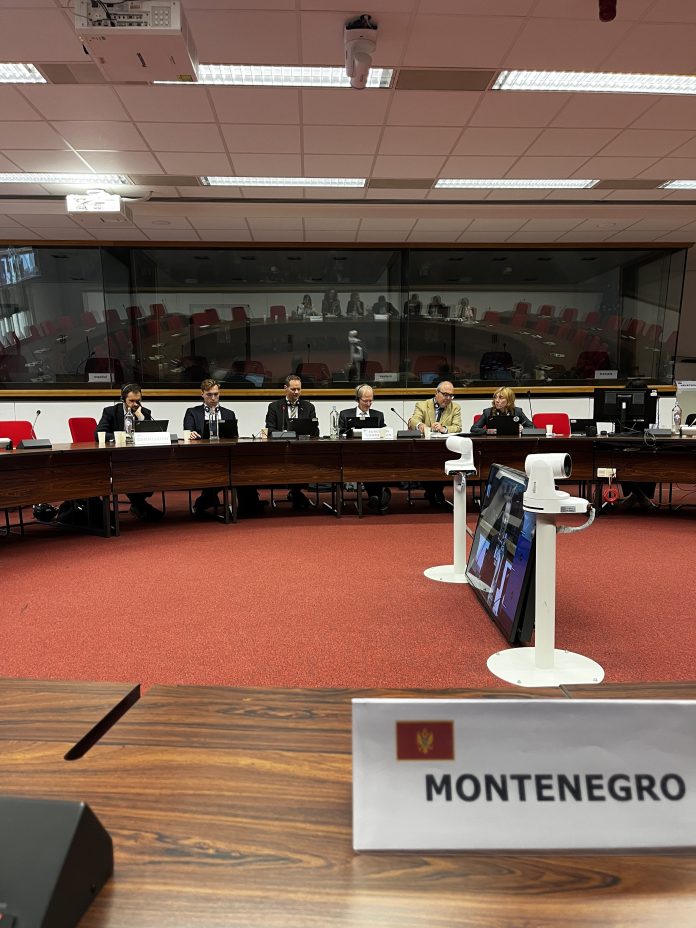A meeting of the Subcommittee on Trade, Industry, Customs, and Taxes between Montenegro and the European Union was held in Brussels in a hybrid format. During the meeting, significant results and progress were presented in negotiating chapters 1 (Free Movement of Goods), 16 (Taxes), 20 (Enterprise and Industrial Policy), 29 (Customs Union), and 30 (External Relations).
The meeting was co-chaired by Heinke Veit, Deputy Head of Unit B4 – Montenegro, Bosnia and Herzegovina from the Directorate-General for Enlargement and Eastern Europe (DG ENEST), and Ivona Savićević, Director General of the Directorate for International Cooperation, European Integration, and Implementation of EU Funds at the Ministry of Economic Development.
Veit emphasized that today’s meeting is taking place in a very dynamic context, considering that Montenegro has provisionally closed seven negotiating chapters, remaining the most advanced country on the path to EU membership.
“This reflects the reforms that Montenegro has already implemented, which was most recently confirmed by the provisional closure of Chapter 5,” Veit stated. She recalled that, in line with the revised enlargement methodology, the accession process is and will remain merit-based, with fundamental values and the rule of law at its core.
Heinke Veit stressed that much work remains for Montenegro to achieve its ambitious goal — to provisionally close 26 chapters by the end of 2026 and meet all relevant criteria for closure.
“In the end, unity and focus, combined with high speed and the highest quality of implementation, are the recipe for meeting all the criteria for closing all negotiating chapters in the next 18 months,” Veit concluded. She also highlighted the importance of the Growth Plan for the Western Balkans as a key mechanism for supporting reforms.
Ivona Savićević, Director General of the Directorate for International Cooperation, European Integration, and Implementation of EU Funds, expressed her satisfaction with co-chairing the hybrid meeting on behalf of Montenegro and pointed out that the meeting serves as a platform for exchanging views and presenting progress made in chapters 1, 16, 20, 29, and 30.
“In a global environment that is rapidly changing — marked by disruptions in supply chains, challenges in energy security, and new industrial priorities — our dialogues on goods, taxation, customs policy, and entrepreneurship have strategic importance,” said Savićević.
She emphasized that Chapters 1 and 29 are approached with the clear goal of simplifying trade, reducing barriers, and strengthening economic resilience in accordance with WTO principles and the EU’s Common Commercial Policy.
Regarding Chapters 16, 20, and 30, Savićević stated that the goal is to create a regulatory environment that encourages sustainable taxation, supports industrial growth, and aligns Montenegro’s external relations with the EU’s fundamental values.
“Montenegro’s accelerated accession to the EU is not only a regional but a European success based on shared values, mutual responsibility, and a common future,” Savićević concluded.
Montenegro continues to achieve good results in the area of trade and access to the EU single market and remains committed to implementing reforms aligned with EU legislation and standards, which will lead to further progress on its path to EU membership, it was emphasized at the Subcommittee meeting.


